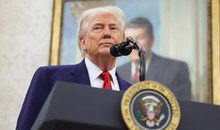
 Flash News
Flash News
Montenegrin Army to train Ukrainian soldiers
The Serbian Federation reveals the stadium where it will host Albania on October 11!
The 40-year-old survived the air disaster: When I opened my eyes, I saw bodies everywhere, then...
State Matura 2025, foreign language exam grades published
Video/ This is the moment the Air India plane crashes with 242 people on board
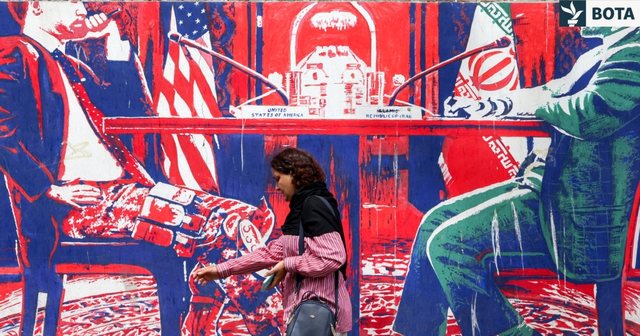
Diplomacy between the United States and Iran over Tehran's nuclear program has hit a new hurdle - not over uranium enrichment or sanctions - but over a very simple issue: when to meet.
While US President Donald Trump insists that the next round of talks will take place on June 12, Iranian Foreign Ministry spokesman Esmail Baqaei says talks will resume on June 15 in Muscat.
Oman, which is mediating the talks between them, has not yet spoken.
The disagreement over the date of the meeting comes as Iran's chief negotiator, Foreign Minister Abbas Araqchi, is expected to be in Norway on June 12 for the Oslo Forum, making it difficult (but not impossible) for a meeting with the US on that day.
Omani Foreign Minister Badr Albusaidi will also be in Oslo, so if White House envoy and nuclear negotiator Steve Witkoff travels there, there could be a meeting.
Despite the confusion over the date, the importance of the meeting is clear: the sixth round of talks is emerging as a defining moment.
Iran has officially rejected Washington's proposal for a deal, calling it "unacceptable" and deficient on key issues, especially regarding the lifting of economic sanctions and recognition of Iran's right to enrich uranium on its soil.
Tehran says it will soon submit a counterproposal through Oman, a plan it describes as "reasonable, logical and balanced" and calls on the United States to take it seriously.
While Iran has kept the details of this counterproposal secret, Deputy Foreign Minister Majid Takht-Ravanchi says it is not a long document, but a "rational" proposal that "cannot be dismissed with a simple 'no'."
He describes it as a solid and acceptable basis for further discussions.
The proposal is expected to insist on the right to continue enriching uranium - a non-negotiable point for Tehran - and demand the effective and verifiable lifting of sanctions before Iran makes any concessions.
For their part, Trump and other US officials continue to maintain that any deal must force Iran to stop enrichment, a stance that Iran's supreme leader, Ayatollah Ali Khamenei, has completely rejected as "100 percent contrary" to national interests.
All this is happening as the Board of Governors of the International Atomic Energy Agency (IAEA) meets in Vienna for its quarterly session, where the Iranian file is at the top of the agenda.
The IAEA's latest full report, published on May 31, concludes that Iran has not provided credible answers about undeclared nuclear material and activities in several locations and that its cooperation with inspectors has been "less than satisfactory."
The United States and its European allies – Britain, France and Germany (known as the E3) – are pushing for a resolution that would formally declare that Iran is not meeting its safeguards obligations for the first time in two decades.
If passed, the resolution would not immediately expedite the issue at the UN Security Council, but it would give Iran a deadline to address its concerns. It would be a major step toward reinstating UN sanctions if Iran fails to cooperate.
Meanwhile, Iran has threatened to retaliate if the resolution is passed, hinting that it could expand its nuclear program, including installing thousands of advanced centrifuges.
The automatic reinstatement of UN sanctions is a provision in the now-failed 2015 deal, and the E3 countries want to use it before it expires in October.
If the resolution is passed, it could affect the tone of the next round of nuclear talks.
Adding to tensions, Iran's Intelligence Ministry claimed last weekend that Tehran has secured a "treasure trove" of sensitive Israeli documents, including material on Israel's nuclear program and defense capabilities.
As Israel prepares to strike Iranian nuclear facilities if negotiations with the US fail, Iran's Supreme National Security Council said the alleged intelligence leak would allow Iran to retaliate "immediately" by striking Israel's "secret nuclear facilities."
For now, the world is waiting – not only for the content of an agreement, but also for negotiators to agree on a date and venue for the talks./ REL
Latest news






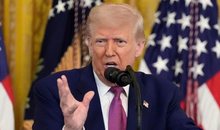

Montenegrin Army to train Ukrainian soldiers
2025-06-12 20:13:45
Italia në alarm, zgjebja po përhapet me shpejtësi
2025-06-12 20:11:39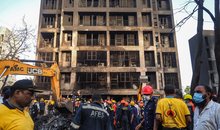

Dua Lipa gets engaged: I'm happier than ever with Callum Turner
2025-06-12 19:44:29

Around 29,000 Albanians left last year, INSTAT estimates
2025-06-12 19:31:23

Rama "sacrifices" the socialists to make fun of Soros
2025-06-12 19:13:33
Montenegrin Army to participate in EU military assistance mission to Ukraine
2025-06-12 18:57:36



Body acne, six ways to prevent it
2025-06-12 18:05:03

State Matura 2025, foreign language exam grades published
2025-06-12 17:31:26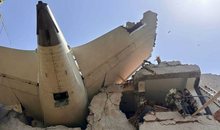
Video/ This is the moment the Air India plane crashes with 242 people on board
2025-06-12 17:27:59
GJKKO postpones the hearing for 'Golden Bullet' to June 17
2025-06-12 17:23:50
The decline of democracy in Albania, the alarm from the European Parliament
2025-06-12 17:03:38

What does the murder of Superman Veliaj reveal about May 11?
2025-06-12 16:40:53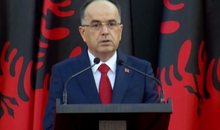


UN report: Europe is surrounded by a belt of countries in crisis
2025-06-12 16:08:47
Sula: The scandal with the state matura, a failure of the education system
2025-06-12 16:08:42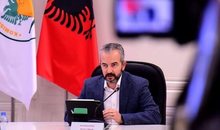

'I have no affection', Erion Isai separates from his wife
2025-06-12 15:40:38


On the 84th anniversary, the SP is ever bigger, Albania is ever smaller
2025-06-12 15:07:25
A "lazy day" a week can reduce stress and stroke risk
2025-06-12 14:56:30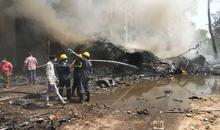

Tragic in Fier, 28-year-old found dead in the yard of his apartment
2025-06-12 14:39:15
How does temperature affect body composition?
2025-06-12 14:33:18
Throwing company waste into the Buna River, 31-year-old employee prosecuted
2025-06-12 14:30:11
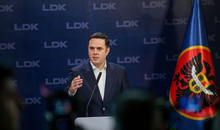
LDK's Abdixhiku unveils 15-point agenda for a unity government
2025-06-12 14:14:24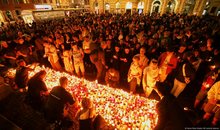
From shootings to stabbings/The history of deadly school attacks
2025-06-12 14:11:51
3 Albanians, part of criminal organizations, extradited to Italy
2025-06-12 13:59:15
A 26-year-old man is arrested for the armed conflict in Ali Dem
2025-06-12 13:40:31
Report/ Albania worsens in gender equality index
2025-06-12 13:40:14

Quarrel between neighbors in Patos, 35-year-old injured with screwdriver
2025-06-12 13:07:05

Accident on the Krahes-Memaliaj axis, a 65-year-old man is injured
2025-06-12 12:45:49

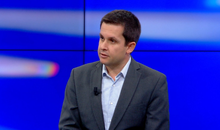
Demand a recount of votes in Tirana, the Court dismisses Alimehmet's case
2025-06-12 12:22:08
Suffering cardiac arrest, vacationer dies on Qerret beach
2025-06-12 12:05:48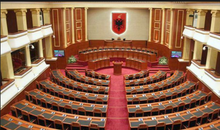
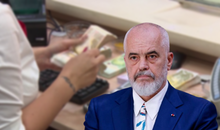
The market is "demanding" a minimum wage increase
2025-06-12 11:52:37
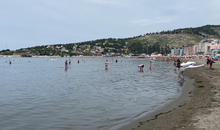
Alarm on the coast/ Elderly woman from Kosovo risks drowning!
2025-06-12 11:25:51
The hearing for "Golden Bullet" is postponed due to the lack of lawyers.
2025-06-12 11:06:27
The Special Court schedules the hearing for the “Partizani” case
2025-06-12 11:00:42
"We work to steal"/ Berisha releases Rama's video: The first time he is honest!
2025-06-12 10:52:11


US limits non-essential staff at embassy in Iraq after rising tensions with Iran
2025-06-12 10:19:44

Hero in Greece/ Albanian immigrant saves two children from drowning in river
2025-06-12 09:52:46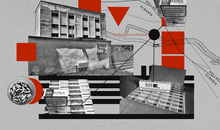
Albanian Customs Officials Crack Down on Cigarette Smuggling Business
2025-06-12 09:37:17

26 years of freedom! Kosovo marks Liberation Day today
2025-06-12 09:14:19
Clear skies across the country, weather forecast for today
2025-06-12 09:03:08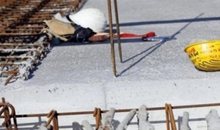
The level of salaries in construction and tourism remains below average
2025-06-12 08:49:54


Murder in Xibar i Klos/ Hazbi Velsula, the victim's cousin, in custody
2025-06-12 08:23:45
Morning Post/ In 2 lines: What mattered yesterday in Albania
2025-06-12 08:09:51
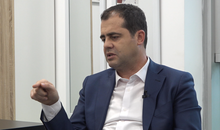
Bylykbashi: The EPP Assembly adopted the strongest resolution in this forum
2025-06-11 22:46:15
A person is found dead in Klos, suspected of being murdered
2025-06-11 22:33:38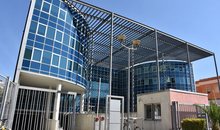


Rape the cleaning worker in Athens, the Greek police declare the Albanian wanted
2025-06-11 21:30:13
Disappointment with Latvia, Elseid Hysaj reacts after disappointing transfer
2025-06-11 21:15:08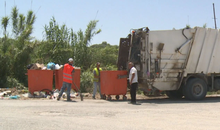

EU: New package of sanctions against Russia focuses on energy and finance
2025-06-11 20:51:17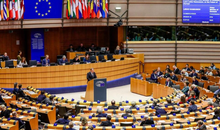

Scandal in Lezhë/ The apartment is covered by sewage
2025-06-11 20:37:59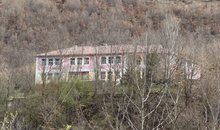
Rural schools left behind in the use of digital tools
2025-06-11 20:09:51
Kosovo bans import of sheep and goats from Albania
2025-06-11 20:01:17
Shot in the head, former Albanian policeman dies after 3 days
2025-06-11 19:41:08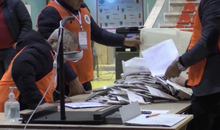


Weather-shaping factors: How cloud-dwelling microbes affect our lives
2025-06-11 19:01:22



Immigration policies/ Famous TikToker leaves the US
2025-06-11 18:20:30
